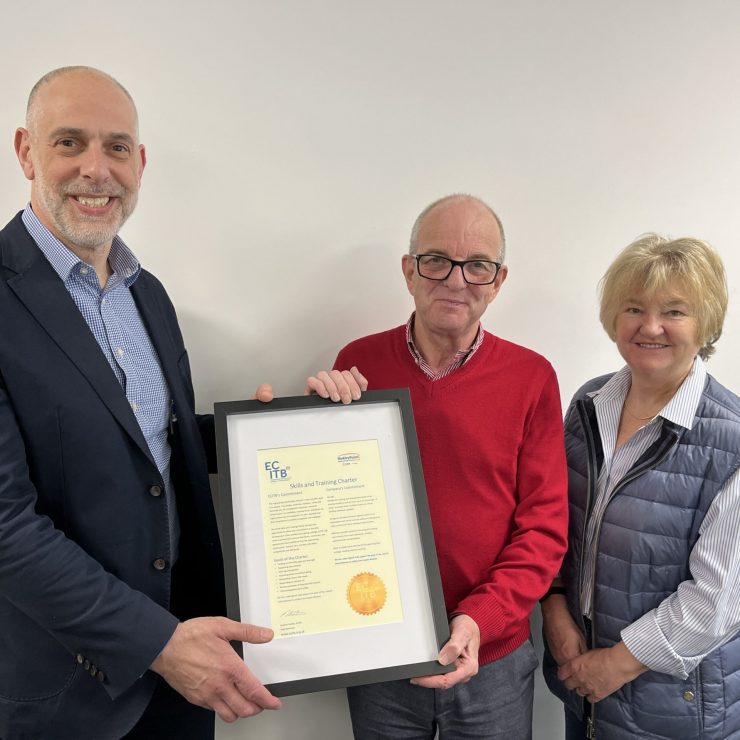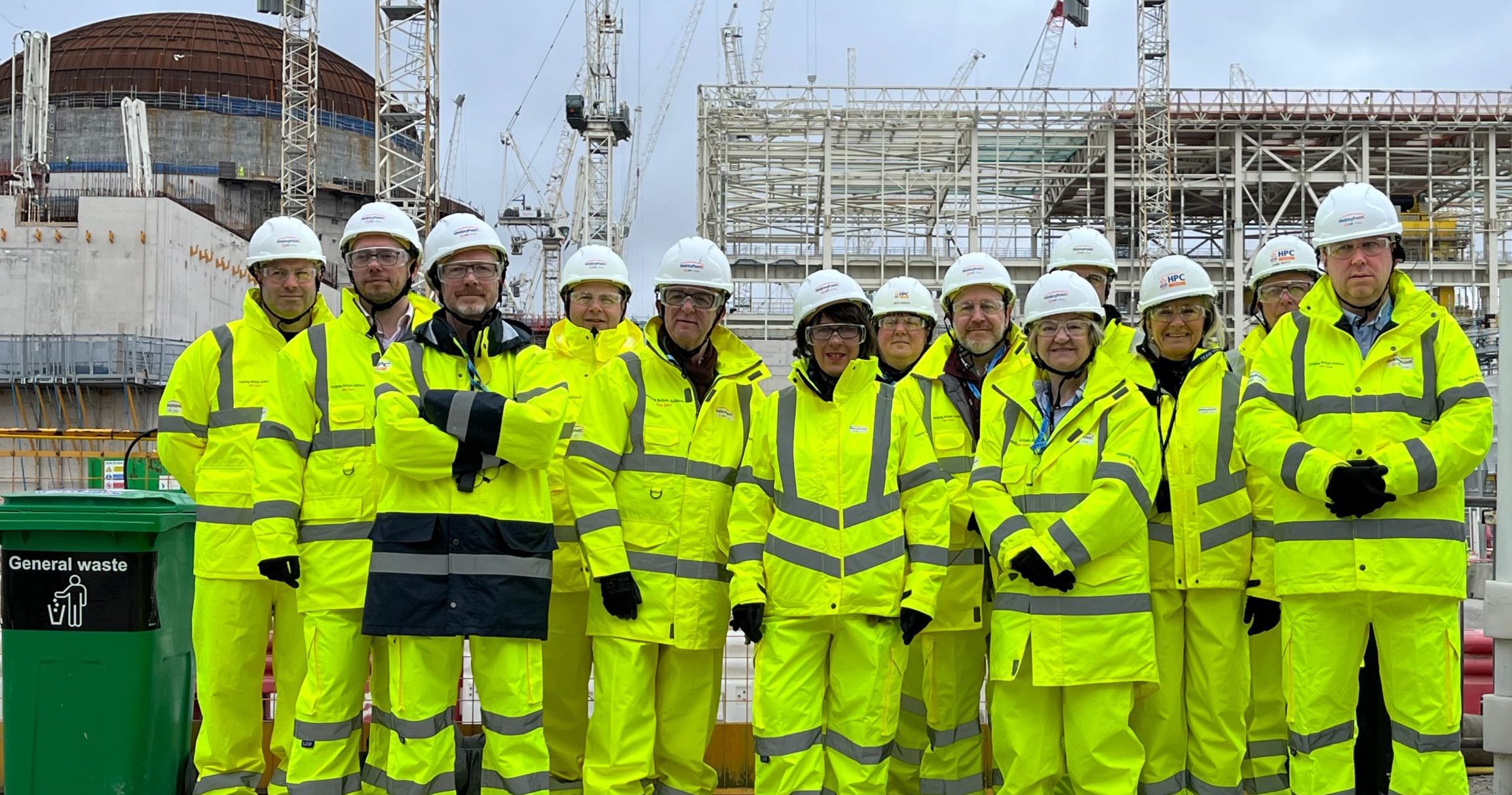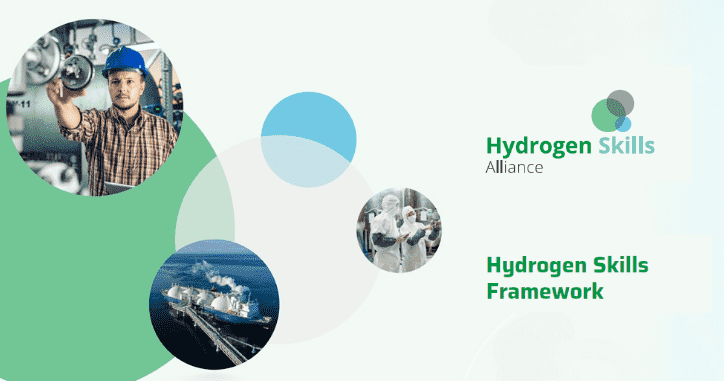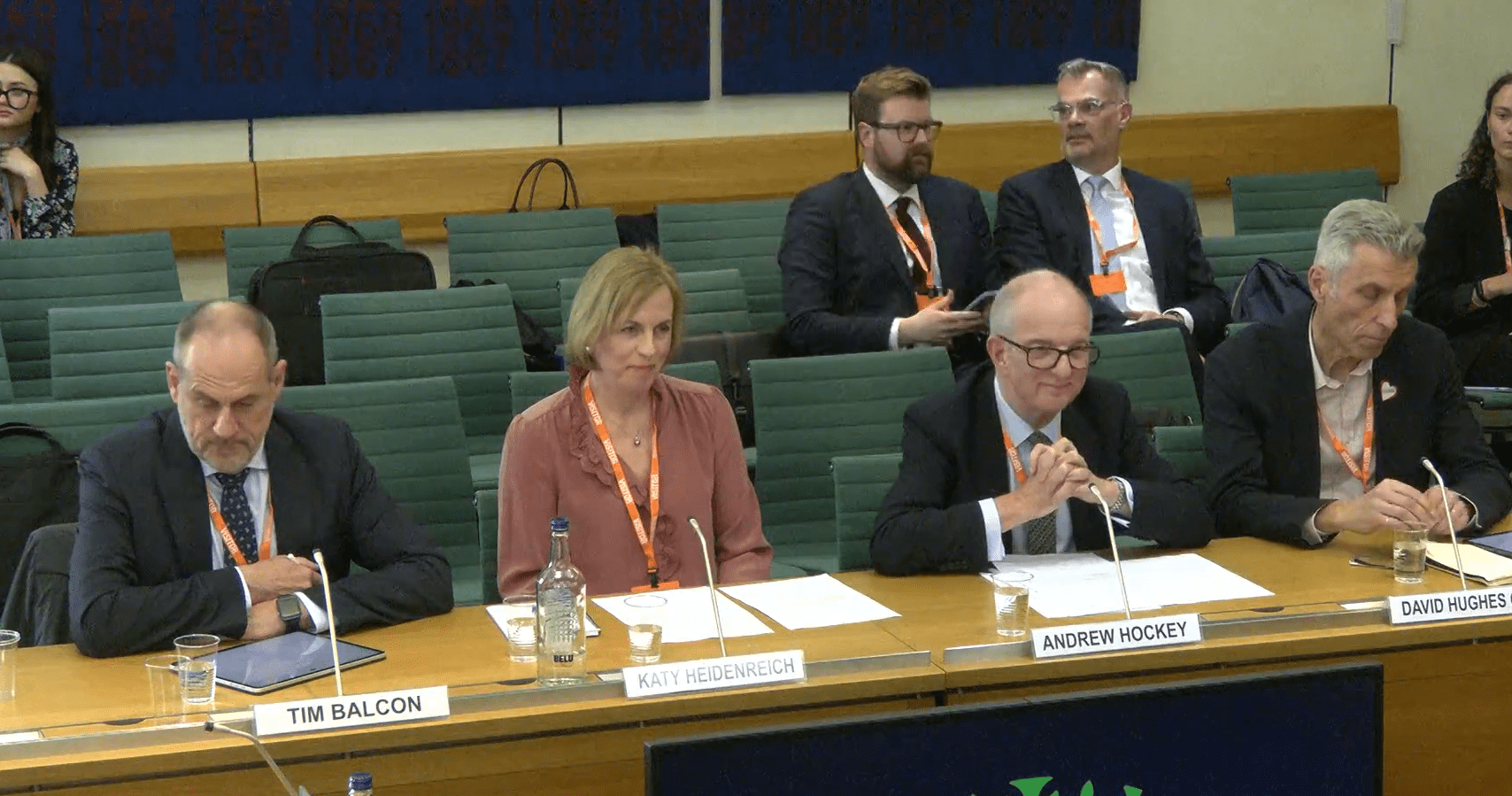
The Engineering Construction Industry Training Board (ECITB) has recognised the commitment to the training and development of skilled workers for the biggest construction project in Europe at Hinkley Point C (HPC).
On his first visit to the nuclear power station site in Somerset, ECITB Chief Executive Andrew Hockey presented HPC with the ECITB Skills and Training Charter Gold Standard, pictured.
The award is recognition of HPC’s work in upskilling and training its workers as part of the construction project to build the first new nuclear power plant in the UK in 20 years.
Membership of the ECITB Skills and Training Charter involves employers pledging their continued commitment to develop the skills of their workforce.
The Gold Standard is the highest rank of membership a company can receive, with HPC’s grading confirming it meets the standards required by the ECITB charter to operate safely, competently and efficiently within the engineering construction industry (ECI).
Andrew was joined on the visit to Hinkley Point C (HPC) by ECITB Chair Lynda Armstrong OBE, other colleagues from the employer-led skills body and stakeholders including training providers from Suffolk who will be supporting its sister project – Sizewell C – in the coming years.
As well as conducting a tour of the site, Andrew discussed the skills and training needs of the workforce with Ben Ring, Scott O’Connell and members of the Employment Affairs Unit from HPC and how they can continue to collaborate on the HPC project.
“As part of our Skills and Training Charter, we work in partnership to ensure that clients, contractors and government have confidence that workers in the industry carry out their roles safely, competently and efficiently.
“Awarding the Gold Standard recognises the commitment shown when it comes to training and developing workers on such a huge site at Hinkley Point C.
“The ECITB’s Leading Industry Learning Strategy prioritises ensuring the industry has the skilled workers it needs to meet demand. Helping industry deliver net zero is central to this work.
“On the back of the UK government classifying nuclear as a ‘green’ industry in 2023, we are committed to working in collaboration to have the skilled workers needed to help Hinkley Point C go on to provide 7% of the UK’s electricity for 60 years.
“For example, we supported the build of HPC’s Mechanical Centre for Excellence, which will have a legacy impact in terms of training and developing workers.”
Andrew Hockey
ECITB Chief Executive
Hinkley Point C giving thousands of people new skills
According to the Hinkley Point C Socio-Economic Impact Report 2024, Hinkley Point C is helping thousands of people get new skills with the training and support they need to reach their potential and progress in their careers.
HPC has invested £24 million into education, skills and employment which includes the creation of three Centres of Excellence and the Construction Skills and Innovation Centre, which together have now provided training to over 8,000 people since opening in 2022, including 1,320 apprentices.
The report states that a third of those trained come from the UK’s most deprived areas, while 3,500 people from within 90 minutes of the construction site are helping build the nuclear power station.

“Being recognised for our commitments to skills and training from the ECITB is a fantastic accolade.
“On the back of our socio-economic report, which highlights the positive impact HPC has, this only goes to show that our approach is world class and has achieved so much.
“The approach to skills and our investment in our workforce in partnerships, such as we have with ECITB, provides the very best support to our project.”
Jamie White
Construction Skills Capability Lead at EDF, as well as Chair of the ECITB’s Nuclear Skills Forum and Director of Strategic Partnerships at National College for Nuclear (NCfN)
Recognising workplace skills
Among the objectives of the ECITB Skills and Training Charter include tackling current skills gaps and shortages; supporting new entrants; competence assurance; improving access to quality training; anticipating future skills needs; improving diversity and inclusion; and influencing government policy.
Find out more about the ECITB Skills and Training Charter




